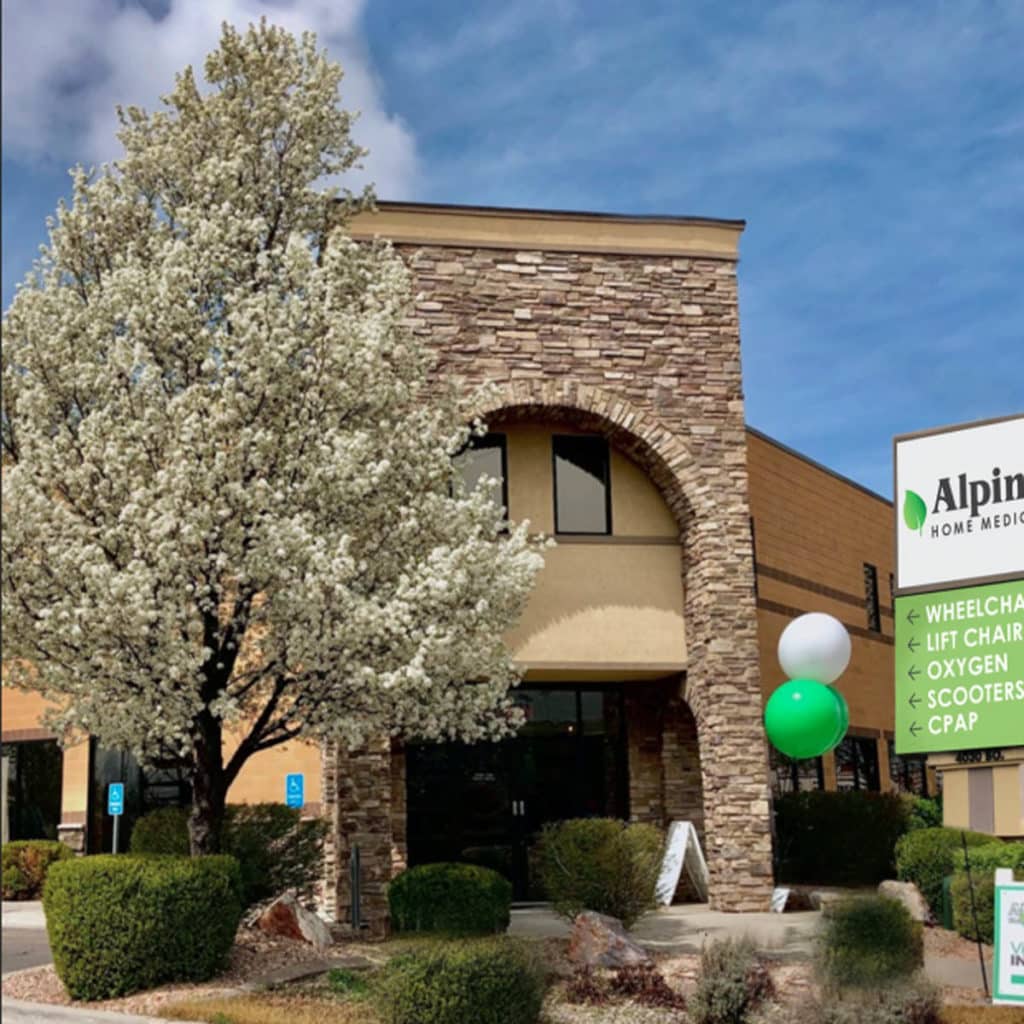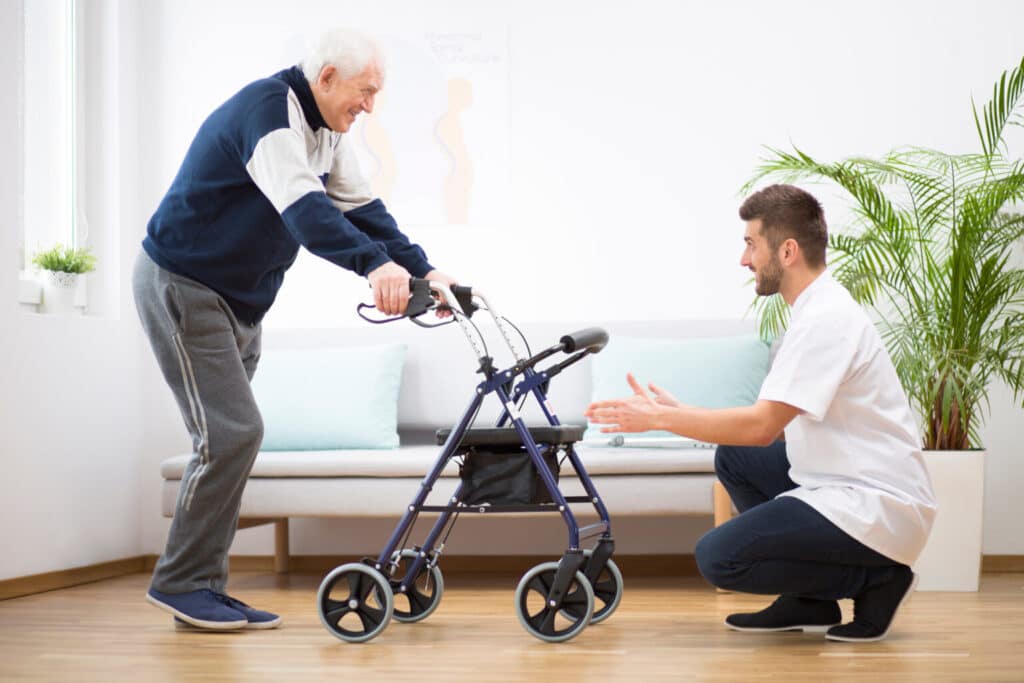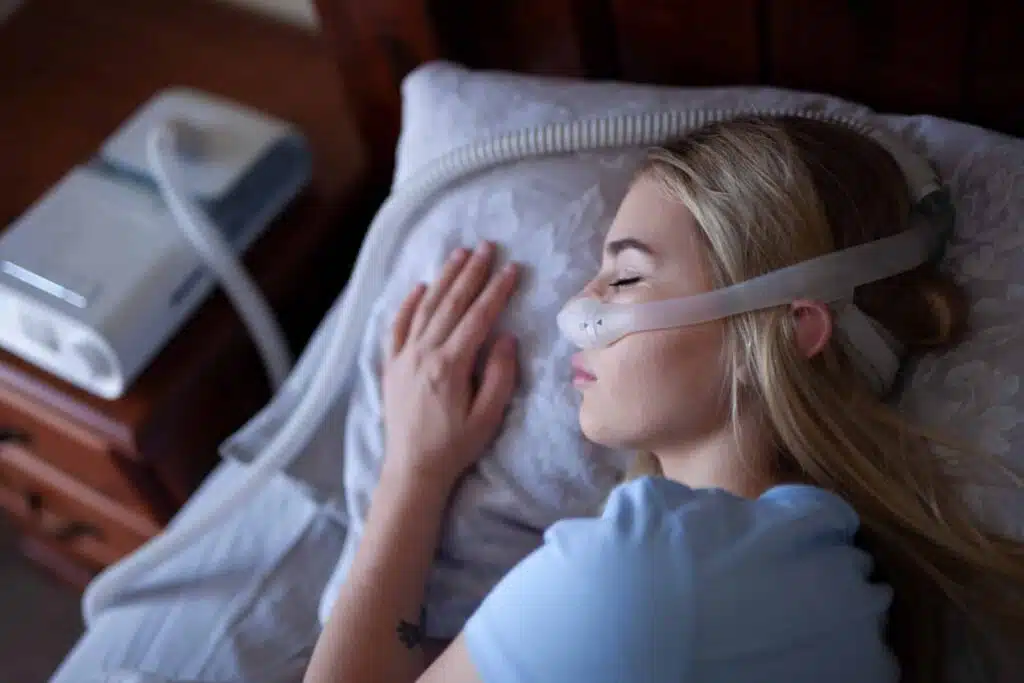
Our Salt Lake City medical supply store is your source for all the equipment and products you need to live healthy at home. Rent or buy from our large selection of top-quality lift chairs, walkers, CPAP machines, scooters, portable oxygen concentrators, & more in store.
Monday – Friday
8:30am – 6:00pm
Saturday – Sunday
CLOSED
Direct
In your search for a Salt Lake medical supply store, look no further than Alpine Home Medical. We offer a wide variety of high-quality medical supplies in Salt Lake for purchase or rent. Whether you need a CPAP machine, wheelchair, walker, or hospital bed, we help you live comfortably and independently at home. To purchase or rent any of our products, stop by our home medical supply store, give us a call, or browse our website.






At Alpine Home Medical, we care about your health and provide products supporting your journey. Trust our helpful staff to answer your questions and help you find the equipment you need to heal and improve your quality of life. We offer a large selection for a vast majority of medical needs.

We carry a variety of walkers & rollators to help you gain independence and increase mobility in your home and beyond.
Our CPAP machines and accessories help you gain restful sleep, ease sleep apnea symptoms, and provide relief from breathing disorders.
Browse our wide selection of cushions and pillows designed to provide more comfort during daily activities.
Our remote-controlled, motorized recliner lift chairs help you safely stand up from a sitting position and are ideal for those with mobility issues.
Regain independence while increasing confidence and self-esteem with the help of our power wheelchairs and mobility scooters.
Alpine Home Medical is your one-stop source for medical supplies. As the leading DME retail store, we proudly provide the high-quality equipment you need–all at an easy price on your wallet. You can choose your rental length with daily, weekly, and monthly rental rates. We provide the following equipment rentals
Alpine Home Medical is your one-stop source for medical supplies. As the leading DME retail store, we proudly provide the high-quality equipment you need–all at an easy price on your wallet. You can choose your rental length with daily, weekly, and monthly rental rates. We provide the following equipment rentals

Yes, we offer delivery or shipping services on many of our products. Whether purchasing or renting, you’ll find shipping or delivery services on many of our medical supplies in Salt Lake. Have questions or need your supplies sooner? Just give us a call.
Click this link to learn more about our Salt Lake medical supply store, including current hours of operation, address, and phone number. You’ll also have the chance to browse through our thousands of satisfied customer reviews, as we’ve got a near-perfect rating with over 2,600 Google reviews.
Yes, we’ve teamed up with Mountain America Credit Union to provide financing options on much of our medical equipment, including lift chairs, scooters, power chairs, and more. Have questions? Learn more about our financing options or contact one of our helpful team members at our medical supply store in Utah.
Yes, we take pride in offering an extensive selection of high-quality medical supplies for rent, including portable oxygen machine machines, hospital beds, wheelchairs, and other essential medical equipment. Learn more about the many Salt Lake medical supplies we offer for rent.
Alpine Home Medical accepts plans from many popular health insurance providers. Please browse our substantial list of accepted insurance providers to find your insurance company. Have questions about coverage? Contact us, and we’ll be happy to help.
Sign up for exclusive updates and promotions.
Draper
132 East 13065 South, Ste 100
Draper, UT 84020
(801) 841-4990
Idaho Falls
2425 Channing Way
Idaho Falls, ID 83404
(208) 535-8627
Logan
1395 N 400 E, Ste A
Logan, UT 84341
(435) 774-4500
Ogden
4669 Harrison Blvd
Ogden, UT 84403
(801) 393-0015
Price
451 S Carbon Ave
Price, UT 84501
(435) 994-3062
Provo
1481 N State St
Provo, UT 84604
(801) 852-0077
Salt Lake City
4030 S State St
Salt Lake City, UT 84107
(801) 463-0044
Richfield
43 S Main
Richfield, UT 84701
(435) 896-6474
St. George
42 S River Rd, Ste 10
St. George, UT 84790
(435) 674-0080
Tooele
168 W 1280 N, Building E, Ste E5
Tooele, Utah 84074
(435) 522-5511
Vernal
753 W. Hwy 40
Vernal, UT 84078
(435) 781-6594
Salt Lake City
4030 S State St
Salt Lake City, UT 84107
(801) 463-0044
Richfield
43 S Main
Richfield, UT 84701
(435) 896-6474
St. George
42 S River Rd, Ste 10
St. George, UT 84790
(435) 674-0080
Tooele
168 W 1280 N, Building E, Ste E5
Tooele, Utah 84074
(435) 522-5511
Vernal
753 W. Hwy 40
Vernal, UT 84078
(435) 781-6594

We Bring Wellness Home